Luncheon teaches Whitworth about connection

On Feb. 27, Joell Czirr, Whitworth professor of psychology, delivered a lecture entitled ‘The Physiology of Belonging’ at the Belonging Luncheon hosted by Student Life. Around 30 people attended the luncheon, and about a quarter of them were students.
Czirr opened her lecture by saying, “When we are known, we can live well. It’s an embodied thing.”
She continued to say that belonging is part of our survival, and it is something we inherently need to be physically healthy. She pointed out that statistically, we are the loneliest generation. Most of us only can name one person we can rely on. That number used to be three. There are also greater amounts of depression and anxiety than ever before.
“The science matches what we all intrinsically know.” She said.
Nate Kerber, ‘23, who is majoring in computer science, said this topic felt extremely relevant to him. Kerber spent the entirety of the fall semester in the Middle East which taught him a lot about how to be present for people.
Kerber was surprised to hear how important physicality is in relationships. “I think, especially for men, it’s often difficult for us to show physical affection to our friends.”
Czirr also explained that our brains don’t code emotional and physical pain separately. The brain handles pain through endorphins, which are more present in some parts of the body than others. These are the places we physically touch when comforting someone– their back and shoulders.
Because of the necessity of connection, Czirr said that a child’s ability to thrive is due to their attachment or lack thereof. She also said that early in life we develop our worldview – the template for how we see the world. This all happens in the first three years of our life, and we often don’t remember it.
“It’s implicit memory, which means it’s actually in our bodies, our visceral reactions.” She said.
Arabelle Bruner, a dual high school junior and first-year Whitworth student, was drawn to this event because she said she felt it was “pretty central to my life the past couple [of] years.”
Bruner moved from California to Washington in eighth grade but shifted into homeschooling for her freshmen year of high school. As a sophomore, she went to public school but then moved into dual enrollment the next year. She said this made her feel “in between two worlds [but] not totally in either of them. It’s kind of hard to find my place in both places.”
Czirr became involved with the luncheon after hearing about the Belonging retreats from Todd Sandberg. She said, “the connection between our minds and bodies has always been my kind of niche in the psychology field” and she’s been interested in “how to bring more overall well-being to the campus.” So, in the fall of 2022, she met with Ayaka Dohi and Rhosetta Rhodes.
Czirr’s interest in the topic of belonging goes back even further to when she was a youth pastor right out of undergrad. She said, “[I] noticed pretty early on that the most important thing you can do is just get to know the kids. The relationship was more important than anything else; that led me into getting my grad work in mental health counseling and finding the same thing. You can have all these therapists who have all these cool techniques or things they want to do but at the end of the day, the most important factor in client change is the quality of [the] relationship between the client and the clinician.”
Czirr explained that abuse can have a huge impact on a person, how they respond to stress and their chances of committing suicide. But even one safe relationship can positively change how a person responds to stress and how you respond to seeing others when they’re in distress. Czirr cited a study that loneliness is 45% more destructive to a person’s health than more commonly stated things like drugs and alcohol.
Czirr’s lecture explained that when we hold hands with someone, we have a good relationship with our brains, don’t notice the pain as much and we physically don’t feel as much pain. Your brain unconsciously knows that you are safe, and you relax a lot more. Being in a healthy relationship also increases a person’s dopamine and serotonin levels to the point where the body makes more dopamine and serotonin receptors inside your brain and the effect builds on itself over time.
To get the best benefits from belonging, Czirr says we must first recognize how important belonging is for us—we are naturally relational and need to take notice of that. Then she mentioned that we need to be ARE: Accessible, Responsive and Engaged, to facilitate belonging within our own lives and others.
This lecture fascinated Bruner, who loves to learn about how people’s brains work. “It was absolutely worth my time,” she said.

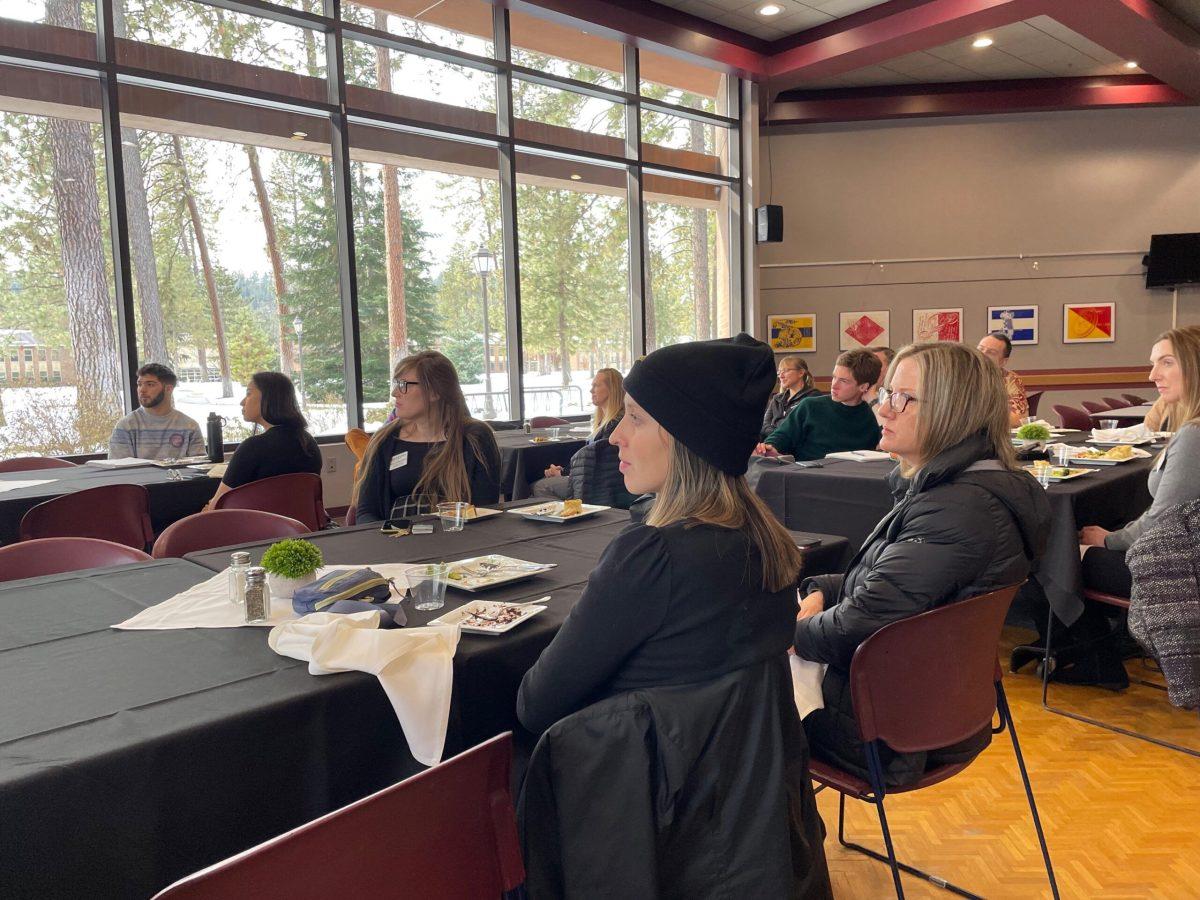






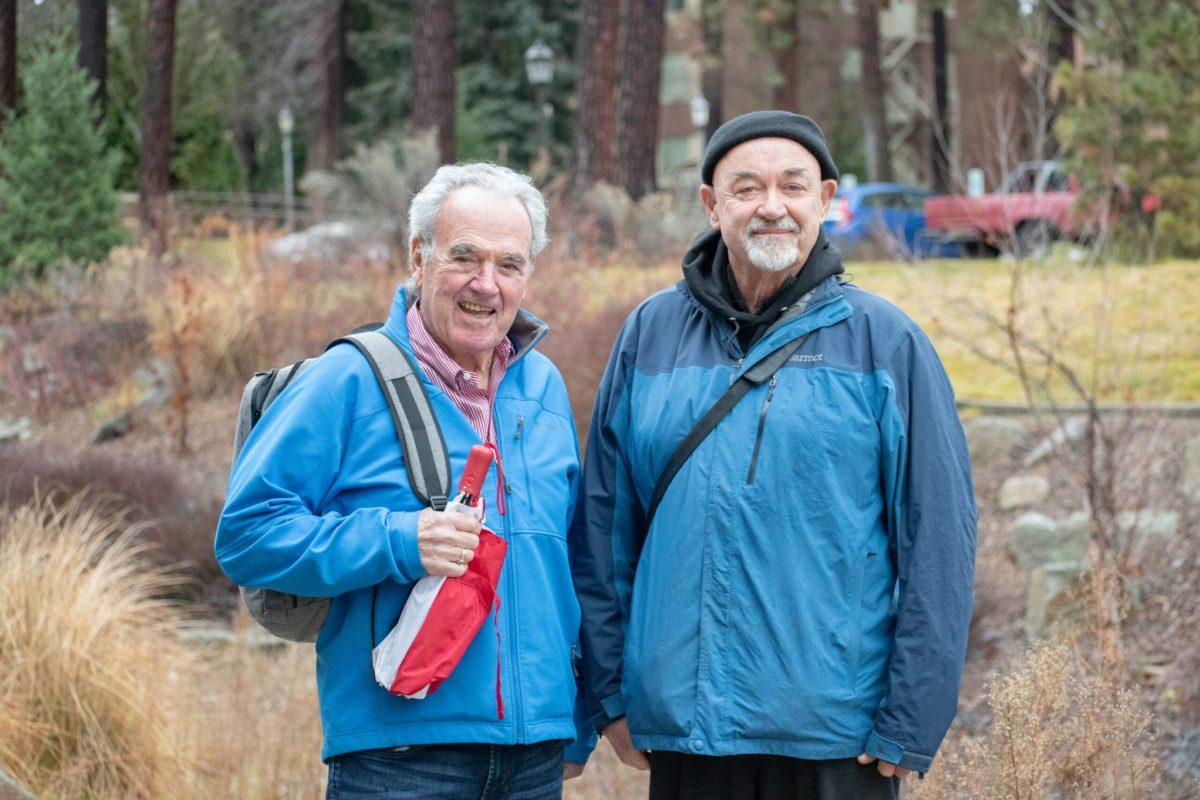

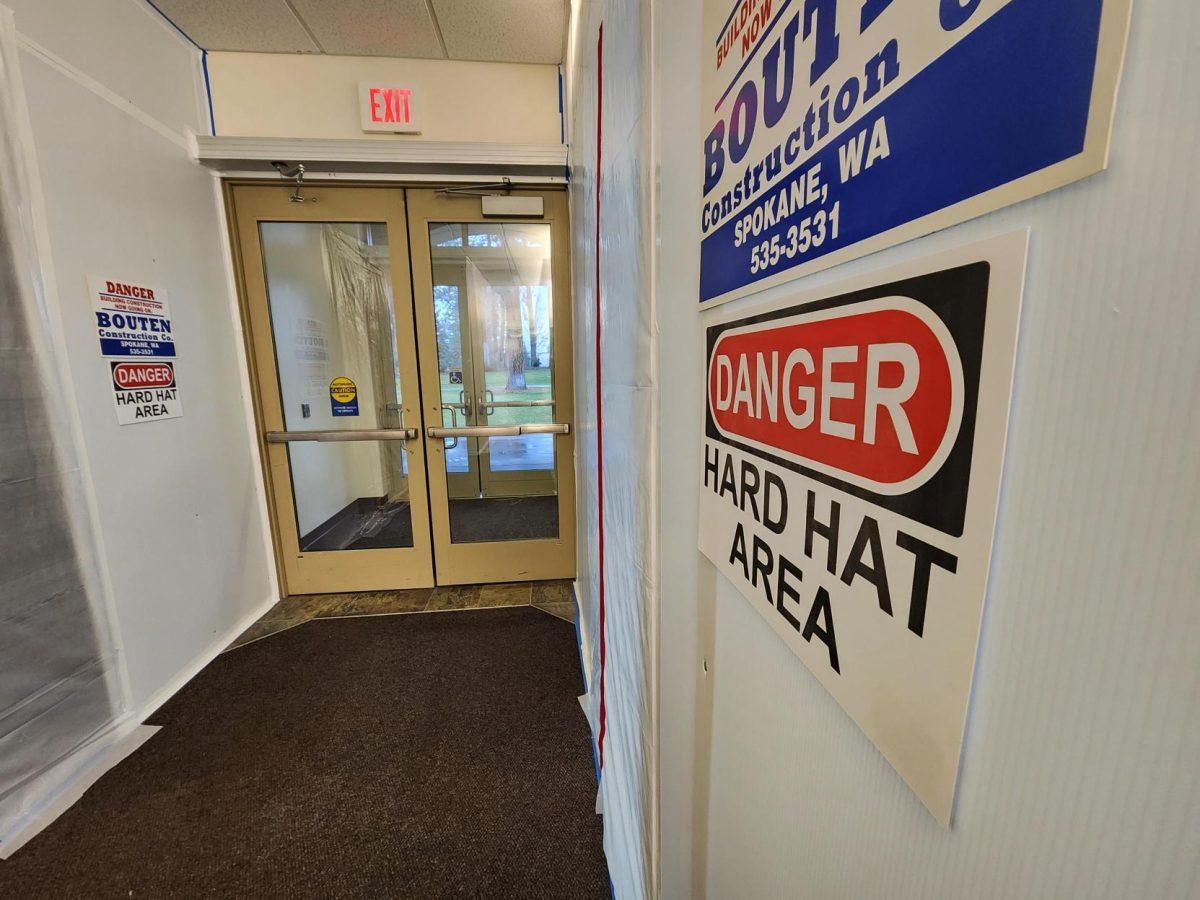
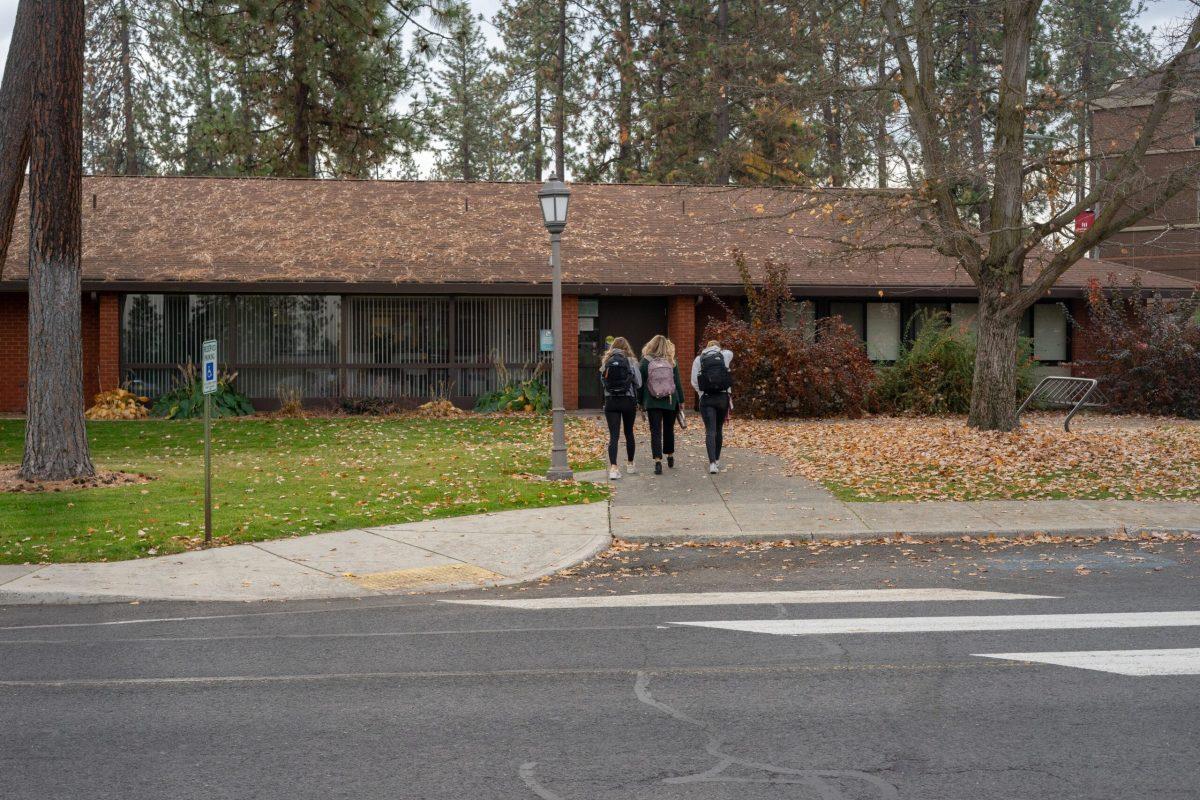

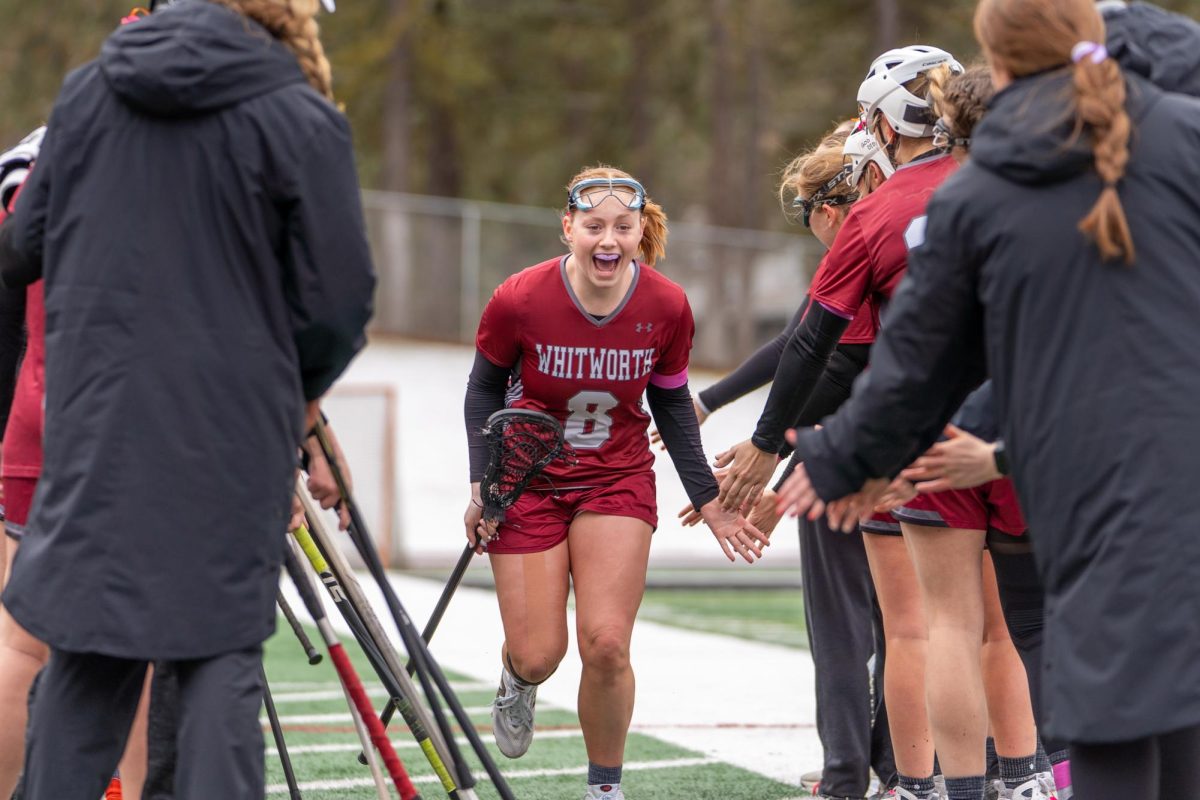
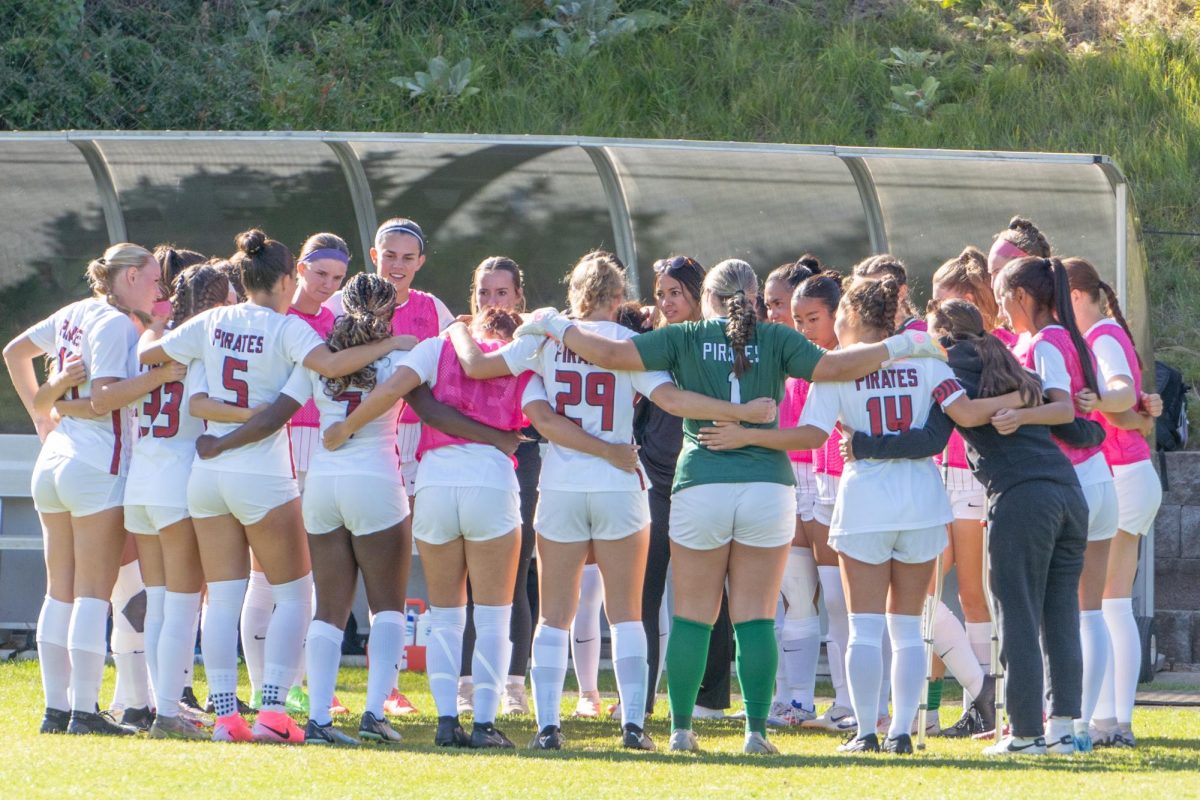



 Spokane?
Spokane?